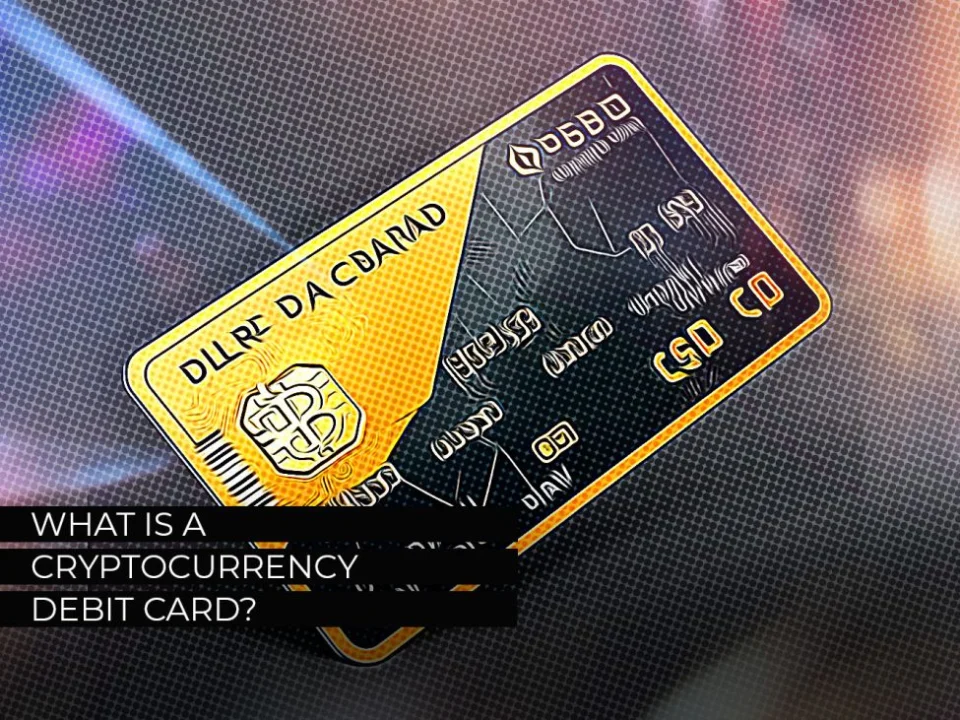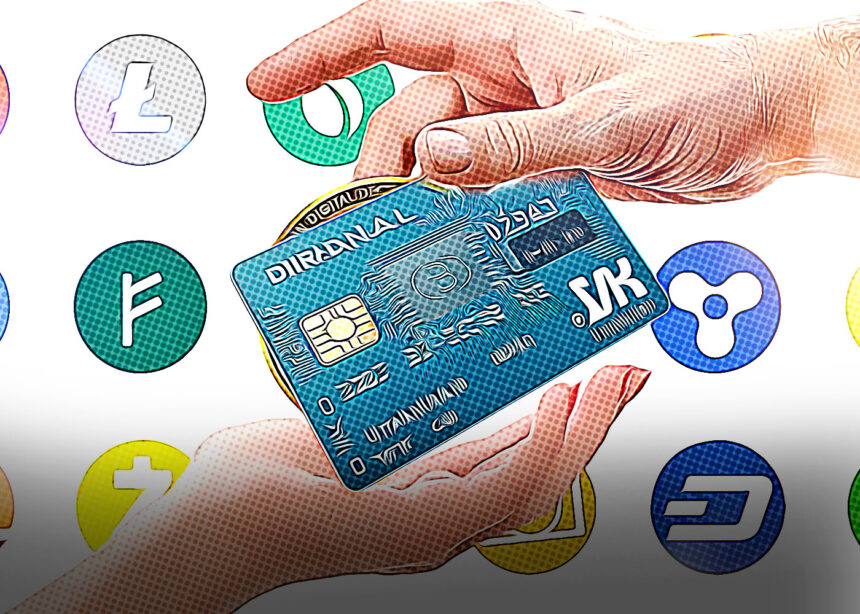Delving into the world of digital finance, many consumers are eager to understand innovative tools like the cryptocurrency debit card. This article will explore how these cards function, highlighting their unique benefits and potential risks. As cryptocurrency gains mainstream traction, understanding these debit cards can help you make more informed financial choices.
How Cryptocurrency Debit Cards Work

A cryptocurrency debit card functions similarly to a traditional debit card but taps into your cryptocurrency balance instead of a bank account. These cards provide a bridge between the digital asset world and everyday spending. Here’s how they typically operate:
1. Funding the Card:
- You load your card with cryptocurrencies like Bitcoin, Ethereum, or others.
- The provider converts your crypto into fiat currency (e.g., USD, EUR) when you perform a transaction.
2. Making Purchases:
- Use the cryptocurrency debit card at any location where traditional debit or credit cards are accepted.
- The card automatically deducts the equivalent fiat amount from your crypto balance for each purchase.
3. Managing Balances:
- Most providers offer mobile apps or online platforms to track spending and manage funds.
- The value of your cryptocurrency can fluctuate, impacting the available balance on your card.
4. Fees and Limits:
- Be mindful of fees such as transaction fees, foreign exchange fees, and maintenance costs.
- There may also be limits on daily transactions or ATM withdrawals.
In summary, a cryptocurrency debit card simplifies the process of spending digital assets in the physical world, making cryptocurrencies more accessible for everyday use.
Benefits of Using Cryptocurrency Debit Cards
Using a cryptocurrency debit card offers several advantages that appeal to both seasoned crypto enthusiasts and newcomers alike. Here are some key benefits:
Convenience: A cryptocurrency debit card allows users to spend their digital assets directly wherever traditional debit cards are accepted. This means no need for constant conversions to fiat currency.
Real-Time Conversion: These cards often feature real-time conversion of cryptocurrencies to local currencies at point of sale, simplifying the transaction process.
Enhanced Security: Many cryptocurrency debit card providers offer enhanced security features, such as two-factor authentication and real-time transaction alerts, to protect your digital funds.
Global Acceptance: Given the wide acceptance of major card networks like Visa and Mastercard, cryptocurrency debit cards can be used almost anywhere across the globe.
Earn Rewards: Some providers offer rewards in the form of cashback, points, or even additional cryptocurrency for using their cryptocurrency debit card.
Lower Transaction Fees: Compared to traditional bank transfers, cryptocurrency transactions through these cards often incur lower fees, making them a cost-effective option.
Hence, integrating a cryptocurrency debit card into your financial toolkit can vastly streamline your spending while offering numerous perks.
Potential Risks and Considerations
While a cryptocurrency debit card offers numerous advantages, it also comes with potential risks that users need to consider. Let’s explore these carefully to make informed decisions:
- Volatility: Cryptocurrencies are highly volatile. The value of your assets can fluctuate significantly, impacting the funds available on your cryptocurrency debit card.
- Security Concerns: Although transactions are secure, the safety of your private keys is crucial. Losing your keys or falling victim to scams could mean losing access to your funds permanently.
- Limited Acceptance: Not all merchants accept cryptocurrency debit cards. Before committing, verify if your frequently visited merchants and websites support such payments.
- Regulatory Uncertainty: Laws and regulations regarding cryptocurrencies vary by country and can change. This regulatory uncertainty might affect how you can use your cryptocurrency debit card.
- Fees: Some cryptocurrency debit cards come with various fees, including transaction fees, maintenance fees, and currency conversion fees. Understanding these costs can help you avoid unexpected expenses.
By weighing these potential risks and considerations, users can better assess whether a cryptocurrency debit card aligns with their financial strategies and risk tolerance.
Frequently Asked Questions
What is a cryptocurrency debit card?
A cryptocurrency debit card is a payment card that allows you to spend cryptocurrencies like Bitcoin, Ethereum, and others directly, much like a traditional debit card. The card is linked to a digital wallet and converts your crypto assets into fiat currency (e.g., USD, EUR) at the time of the transaction, enabling you to make purchases at retailers that accept regular debit cards.
How do cryptocurrency debit cards work?
Cryptocurrency debit cards work by converting your digital assets into fiat currency at the point of sale. When you make a purchase, the equivalent amount of cryptocurrency is subtracted from your digital wallet, and the card issuer converts it to the local currency, which is then sent to the retailer. Some cards offer features like cashback in crypto, low conversion fees, and integration with mobile wallets for a seamless experience.
Are cryptocurrency debit cards safe to use?
Yes, cryptocurrency debit cards are generally safe to use as long as you choose a reputable card provider. These cards offer various security features such as two-factor authentication, encryption, and sometimes even insurance for your digital assets. However, it’s crucial to take standard security precautions like protecting your PIN, enabling account alerts, and regularly monitoring your account activity.
What are the benefits of using a cryptocurrency debit card?
Using a cryptocurrency debit card comes with several benefits:
- Convenience: Easily convert and spend your cryptocurrency without needing to manually exchange it for fiat money.
- Global Accessibility: Use the card anywhere that accepts traditional debit cards, providing a practical solution for spending crypto-assets worldwide.
- Rewards and Cashback: Some cards offer rewards like cashback in cryptocurrencies, further enhancing the value of your spending.
- Budget Management: Many cards come with apps that help you track expenses and manage your digital assets efficiently.








Great content for anyone interested in learning about digital assets
Great content for anyone interested in learning about digital assets